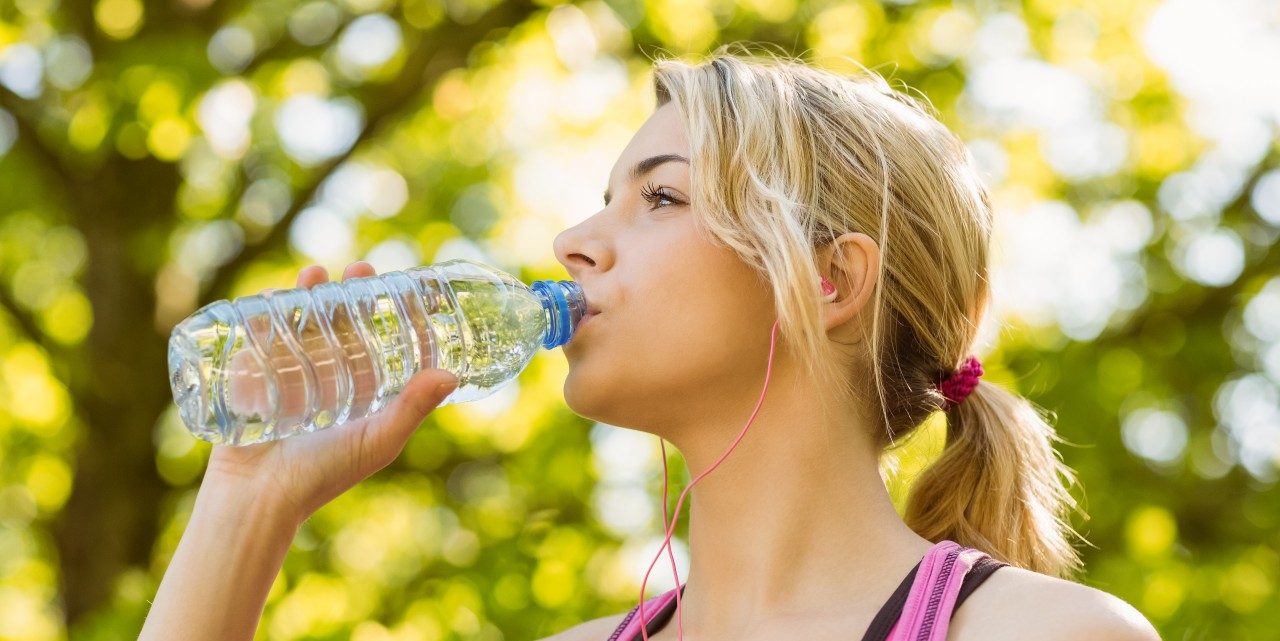Drink Plenty of Water to Avoid Dehydration

Dehydration can cause some serious health consequences, including heat stroke, seizures, and even death. Replenishing fluids is critical during hot summer months.
The hotter the temperature is outside, the more you sweat. And the more you sweat, the more fluid you need to take in to replenish what you’ve lost.
Dehydration is a real threat during the warm summer months. It can cause some serious health consequences, including heat stroke, seizures, brain damage, and even death. Babies, the elderly, and people with chronic health conditions are even more susceptible to dehydration and its ill effects.
“Dehydration is very dangerous. It can lead to an emergency visit, and it can do significant damage to your body if left untreated,” said Sandra Schneider, MD, FACEP, former president of the American College of Emergency Physicians. “But dehydration is also easily preventable, especially if the cause is excessive heat.”
Water is essential, regardless of the weather. Every cell in your body needs it to survive. While you could technically live for three weeks without food, you’ll only make it about three days without water.
YOU MIGHT ALSO LIKE: How to Exercise Correctly During Summer
Signs of dehydration
Dry-mouthed thirst is the most obvious sign of dehydration, but it’s not the only one. Your urine is another good indicator. If it’s dark yellow and you produce less of it than usual, you could be dehydrated. A fast heartbeat, headache, dry cough, flushed skin, and dizziness are other warning signs you have heat exhaustion, meaning you’ve lost too much water and salt from heat exposure.
If you’re a little dry, a glass or two of water or a sports drink might be all you need. For severe dehydration, you’ll need to visit a hospital emergency department for intravenous fluids.
How to prevent dehydration
During the warmer months, a bottle of water is an essential accessory. “Most of us would never leave our homes and offices without our wallets, cell phones, and sunglasses,” said Schneider. “Add bottled water to that list, at least during the hot summer; it’ll help keep you cool, hydrated, and hopefully out of the emergency department.”
You need even more water when you work out. Drink about 16 to 20 ounces before you start exercising, and another 6 to 12 ounces every 15 or 20 minutes during your workout. If you’re exercising intensely or outdoors, you might want to add a sports drink.
“Generally, water is enough, but if you’re going to be out in the heat for more than an hour or exercising for more than an hour, or under an hour if you’re really exerting yourself, then you want to have a rehydration fluid — so something that has salt or sugar,” said Mayo Clinic internal medicine specialist and pediatrician, Vandana Bhide, MD.
Sports drinks also replenish electrolytes such as sodium and potassium that you lose in sweat. While you add more water, cut back on alcohol or caffeinated drinks like soda because they can increase urination and make you lose more fluid.
Another way to prevent dehydration is to avoid doing anything strenuous outside during the hottest part of the day. Exercise early in the morning or closer to the evening hours. When you must be outside mid-day, wear light-colored clothes to reflect the sun’s rays so you don’t get overheated.
Also watch out for children, who can get dehydrated even more quickly than you during outdoor activities. Signs of severe dehydration in children include a dry mouth, chapped lips, and clammy or doughy skin, Bhide says. Give your child cool water to drink, and let her rest in an air-conditioned or shady area until she’s rehydrated.
Updated:
May 23, 2023
Reviewed By:
Janet O’Dell, RN